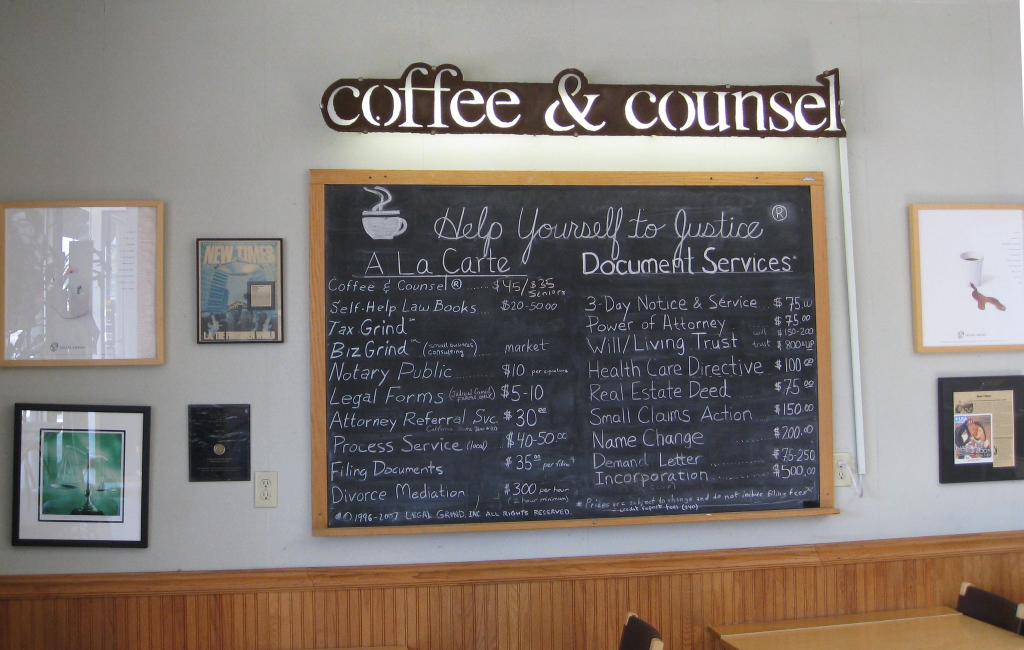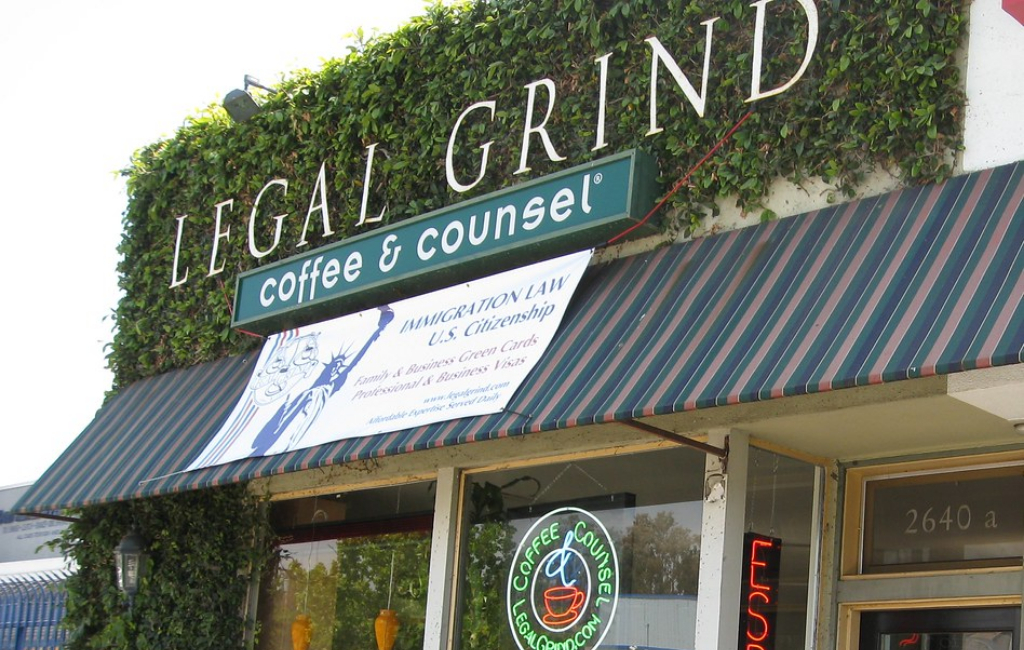Legal Grind

NO DEAL
EPISODE SUMMARY
🕓 Air Date: January 29, 2010
Asking For:
$200,000 for 15%
Investor:
No Deal
Deal:
No Deal
PRODUCT SUMMARY
Legal Grind combines a coffeehouse setting with legal services to cater to the unmet needs of the middle class.
WATCH HERE
IN A RUSH?
Click these to jump to the section you want to read.
Background Story
Legal Grind, founded by husband-and-wife team Jeff and Annie Hughes, is situated in Santa Monica, California. Jeff, a graduate from Loyola Law School, embarked on his legal career during an economic recession, only to realize the scarcity of opportunities for young lawyers. Disheartened by the lack of prospects, he found solace in the idea of opening a coffeehouse. However, his vision evolved when he recognized the potential to merge legal services with the comforting ambiance of a coffee shop.

Inspired by his own experiences and the unmet needs of the middle class, Jeff conceptualized Legal Grind, envisioning a space where legal resources could be accessible and affordable. With the support of Annie and their families, they brought this vision to life in 1996, establishing Legal Grind Coffee & Counsel in Santa Monica. Annie’s background complements Jeff’s legal expertise, providing valuable insight into business operations and customer relations.

Together, they embarked on a journey to disrupt the legal services industry by offering a unique blend of legal assistance and coffeehouse culture. The genesis of Legal Grind stemmed from Jeff’s desire to create a welcoming environment where anyone, regardless of their socioeconomic status, could seek legal guidance without intimidation. Their shared passion for serving the middle class drove them to innovate and adapt, leading to the creation of Legal Grind as a pioneering concept in the legal services landscape.
The Product
Legal Grind offers a novel approach to accessing legal services by combining a traditional coffeehouse setting with legal resources. Clients can enjoy a cup of coffee while receiving legal counsel, creating a relaxed and approachable atmosphere. The product revolves around the concept of “Coffee & Counsel,” where patrons can conveniently access a variety of legal services alongside their favorite beverage.
The menu of legal services is à la carte, allowing clients to select specific services based on their needs. Services include document preparation, legal consultations, and representation, all offered at affordable prices tailored to the middle-class demographic. The pricing structure is transparent, with clear rates for each service listed.
Clients can engage with Legal Grind by visiting their physical location in Santa Monica or potentially through franchised locations in the future. The company aims to expand its reach by franchising, offering aspiring entrepreneurs the opportunity to replicate the successful model in their communities.
The benefits of Legal Grind’s unique approach include accessibility, affordability, and convenience. By removing the barriers associated with traditional legal services, such as high costs and intimidating environments, Legal Grind aims to democratize access to legal assistance, making it more accessible to a broader range of individuals.

How It Went
The company’s position before Shark Tank
Legal Grind, despite its innovative concept, faces challenges in terms of profitability and scalability. While the company has been in operation for over 13 years, its financial performance is modest, with an annual gross revenue of approximately $200,000. However, after accounting for salaries and expenses, the net profit margin is relatively narrow, hovering around $20,000 to $30,000 per year. This limited profitability raises concerns about the company’s long-term sustainability and ability to attract investors.

Currently, Legal Grind relies on its founders’ personal funds and revenue generated from its Santa Monica location to sustain operations. The company lacks external funding sources and strategic partnerships, hindering its expansion efforts. While franchisee requests have been received, the company struggles to capitalize on these opportunities due to a lack of capital and a well-defined growth strategy. Legal Grind’s customer base primarily consists of middle-class individuals seeking affordable legal services.

The company aims to cater to this demographic by offering transparent pricing and a welcoming environment. However, without significant marketing or advertising efforts, customer acquisition remains reliant on word-of-mouth referrals. In terms of structure, Legal Grind operates as a small business, with Jeff and Annie Hughes overseeing day-to-day operations. The company’s organizational framework lacks depth, with limited resources allocated to marketing, expansion, and strategic planning. This lack of infrastructure hampers Legal Grind’s ability to scale and compete effectively in the legal services market.
The Negotiations:
During the negotiations on Shark Tank, Jeff and Annie Hughes sought a $200,000 investment in exchange for a 15% equity stake in Legal Grind. The Sharks expressed skepticism about the company’s profitability and scalability, citing concerns about the viability of the business model. Despite Jeff and Annie’s passionate pitch and dedication to serving the middle class, the Sharks ultimately decided not to invest.

The negotiation process was challenging, with the Sharks raising valid concerns about Legal Grind’s financial performance and growth potential. While Jeff and Annie emphasized the company’s unique concept and the demand for affordable legal services, they struggled to address the Sharks’ doubts about the scalability of the franchise model. Several Sharks expressed reservations about investing in a business that combined coffee with legal services, questioning the necessity of this approach.

They also highlighted the lack of a clear plan for utilizing the investment and expanding the company’s footprint. Despite Jeff and Annie’s efforts to defend their business model and convey their passion for helping the middle class, the Sharks ultimately passed on the opportunity to invest in Legal Grind. The negotiation highlighted the importance of having a well-defined growth strategy and addressing potential concerns about profitability and scalability when seeking investment.







